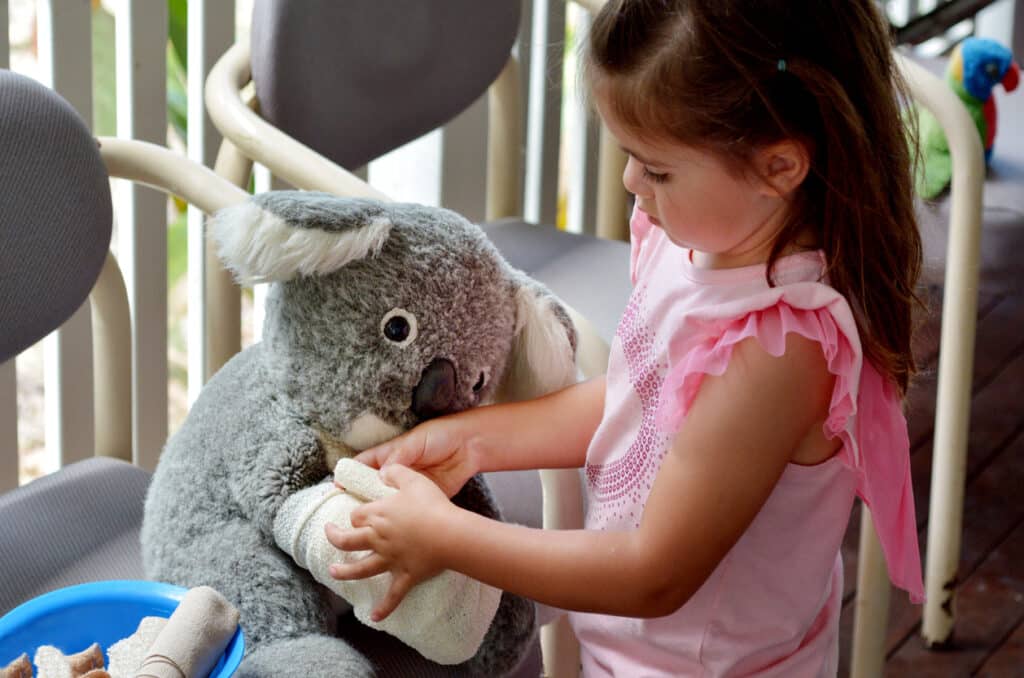Congratulations. You’ve made it across the border, survived Canadian immigration, and learned to spell “neighbourhood” with an extra “u.” Now you’re staring down your first real Canadian winter—a rite of passage best tackled with layers, a sense of humor, and a sturdy pair of boots.
But paperwork and parka-shopping are just the start. Real life in Canada means deciphering sales tax on everything from coffee to concert tickets, politely sidestepping “eh” in small talk, and realizing that “cold” is a sliding scale you haven’t experienced yet.
Whether you arrived on a work permit or as a fresh permanent resident, your first year will surprise you. You’ll build new routines, find unexpected comforts, and—eventually—discover what it really means to call Canada home.
Ready to see what you’re in for? Let’s get moving.
📋 Key Updates for 2026
- Canada’s federal minimum wage is now CAD $17.75 per hour, with Ontario raising its minimum to $17.60 in October 2025.
- New rules limit open work permits for spouses of international students and foreign workers to those in advanced programs or high-demand occupations.
- More provinces now allow new permanent residents to register for health coverage and government IDs fully online.
The first 30 days: Setting up a functional life
If you thought moving north meant instant poutine and maple leaves, think again—your first month in Canada is a paperwork marathon with a side of “Wait, you need what from my home country?”
Here’s what lands at the top of your to-do list:
- Open a bank account (yes, you’ll need ID, proof of address, and patience).
- Apply for your SIN (Social Insurance Number—Canada’s version of a Social Security Number, and you’ll need it for almost everything).
- Secure a credit card—often easier if you have international student status, or plenty of documentation from the U.S. Also, check if your current U.S. bank has a Canadian subsidiary (like RBC or TD) that can “bridge” your credit history internally.
- Register for healthcare—each province has its own timeline and system (hello, Ontario, Montreal, and the Prairies), so check the fine print.
- Start apartment hunting. In major cities like Toronto or Vancouver, get ready for a competitive rental market and, often, a request for several months’ rent upfront—especially if you’re a new arrival without a Canadian credit history. While technically illegal in provinces like Ontario (where only first and last is standard), the low-vacancy reality of 2026 often forces newcomers into ‘voluntary’ prepayments to beat the competition.
Canada prides itself on being streamlined and efficient, but there’s a reason every expat keeps a folder of documents from their old life. Expect a lot of people, a lot of forms, and just a few disclaimers along the way. Your safety net? Sheer persistence—and maybe a local willing to vouch for you.
Weather reality: Understanding regional differences
Forget what you knew about winter. In Alberta, Saskatchewan, and Quebec, winter isn’t just a season—it’s a character-building experience. Subzero temperatures, endless snow, and a wind chill that’ll make you rethink every decision since birth.
On the other hand, places like Halifax and Canada’s coastal cities offer milder winters, more rain, and fewer frozen eyelashes. The trade-off? You’ll become intimately familiar with damp boots and a perpetually overcast sky.
No matter where you land, Canadian cities are masters of snow removal, slush navigation, and salt—the latter of which will become a permanent feature on your shoes, pants, and possibly your soul.
💡 Pro Tip:
Don’t hibernate. Canadians embrace outdoor activities year-round. If you want to fit in, invest in real winter gear and get outside—snowshoeing, skating, or at least pretending to enjoy the cold.
Canada’s healthcare system: What you get and what you don’t
Canada’s healthcare system is famously tax-funded and universal—but there’s fine print, especially for newcomers. You’ll need to register in your province, and most new arrivals face a three-month waiting period before coverage kicks in.
What’s included:
- General practitioner (GP) visits
- Hospital stays and emergency care
- Most essential, medically-necessary services
What’s not included:
- Dental care, vision appointments, and prescription drugs. (Note, however, that under the Canadian Dental Care Plan (CDCP), residents with a family income under $90,000 who don’t have private insurance are covered. If you’ve filed your first Canadian tax return, you might finally get those cleanings covered by the feds.)
- Many mental health services
- Most “extras” that fall outside provincial health plans
💡 Pro Tip:
Wait times for specialists can be long, depending on your province. Pack your patience—it’s part of the package.
What daily costs really look like
Sticker shock is real: major Canadian cities like Toronto and Vancouver routinely top lists for high cost of living. If you land in Saskatchewan or Halifax, your wallet will breathe easier—but expect the trade-off in scenery, pace, or job market.
Where your money goes:
- Groceries aren’t cheap, especially with the USD-to-CAD exchange rate and steep sales taxes added at checkout.
- Utilities, mobile plans, and even credit card fees typically run higher than what you’re used to in the U.S.
- Health insurance: While you get free healthcare for the essentials, you’ll probably need a private policy for dental, drugs, and extras.
The upside: High taxes fund real public goods—universal healthcare, impressive infrastructure, and a public education system that actually works. In Canada, you often get what you pay for—even if it stings at the till.
Safety, public life, and what improves quality of life
Canada’s reputation for safety isn’t just hype. Low crime rates and well-lit neighborhoods make most Canadian cities feel secure—even after dark.
Quality-of-life perks include:
- High walkability and clean public spaces, especially in major cities.
- Significant government investment in parks, public libraries, and family programs.
- Easy access to nature, clean water, and regulated natural resources.
You’ll find that daily life is a bit slower and more deliberate than in the U.S.—with an emphasis on community, well-being, and taking time to actually enjoy your surroundings.
For most new arrivals, these are more than just nice extras. They’re part of what makes Canada genuinely livable.
Culture, community, and social integration
Canada is famously polite—but don’t mistake politeness for instant friendship. Canadians are kind, respectful, and often a little reserved. Small talk is easy, but real connections can take time.
What helps?
- Integration can be a slower process, especially in Quebec, where French language skills and a bit of cultural formality go a long way.
- Multiculturalism isn’t just a buzzword. Expat and international communities are active and visible in most major cities.
- The Canadian government supports all kinds of community initiatives—think volunteer projects, free classes, and local meet-ups.
💡 Pro Tip:
In the current 2026 climate, "networking" is a survival skill, not just a career move. With PR caps tightening, community involvement and "Canadian experience" are weighted more heavily than ever. Join a professional association in your province immediately—it counts toward your social integration and your next visa hurdle.
Work, education, and long-term planning
Adjust your expectations: the Canadian job market can feel slow-moving, especially if you’re new to the country or lack Canadian credentials. The 2026 market is prioritizing category-based draws. If your background isn’t in healthcare, trades, STEM, or agriculture, you’ll need to be twice as aggressive with your networking to land an offer.
What to know:
- Full-time jobs come with strong benefits: Health insurance, generous parental leave, and more vacation days than you’ll get stateside.
- The education system is publicly funded and highly respected, with standout reputations in provinces like Alberta and Quebec.
Thinking long term? Permanent residents and new immigrants can apply for citizenship after three years of residence and tax filings. For many, that’s the ultimate vote of confidence in their new country.
What surprises most U.S. expats in year one
Even well-prepared expats find themselves caught off guard by a few Canadian quirks:
- Credit cards don’t cross the border: You’ll start from scratch with Canadian banks—no matter your pristine U.S. credit score.
- High taxes have a purpose: The bite is real, but so are the benefits: public healthcare, clean cities, and social support systems.
- Quality of life is more than a slogan: Many find that daily comfort, safety, and work-life balance make up for the extra cost, red tape, or wait times.
- Integration is a marathon, not a sprint: Becoming part of the community takes time, but the progress is steady—especially for those aiming to become a Canadian citizen down the line.
Canada has its frustrations, but for many, the upsides win out.
Your first year, decoded
Settling into life in Canada is part challenge, part discovery. The paperwork, the winter, and the credit score reset are real—but so are the clean parks, universal healthcare, and sense of safety you can feel walking home at night.
For most U.S. expats, it’s a trade-off worth making: a country that feels stable, welcoming, and thoughtfully built for community well-being. The adjustment isn’t always quick, but if you stick with it, you’ll find yourself calling Canada “home” before you know it.
And if you need help with the one part of your life that never seems to cross borders as easily—your U.S. taxes—Bright!Tax is here. Reach out if you want expert support managing your stateside filings, so you can focus on living well in your new country.
Frequently Asked Questions
-
Do I need private health insurance when I first arrive in Canada?
Most provinces have a waiting period (often up to 3 months) before public healthcare coverage begins, so it’s wise to have private health insurance for that gap.
-
Will my U.S. credit score transfer to Canada?
No. Canadian banks do not recognize U.S. credit history, so you’ll need to build credit from scratch with a local account and card.
-
How cold does it really get in Canada?
It depends where you live. Winters in Alberta, Saskatchewan, and Quebec can reach subzero temperatures, while coastal cities like Halifax tend to be milder (but rainier).
-
Are groceries and utilities more expensive than in the U.S.?
Generally, yes. Expect higher prices on groceries, utilities, mobile plans, and even credit card fees compared to most U.S. cities.
-
Is it hard to make friends in Canada as an expat?
Canadians are friendly but reserved. Integration takes effort—joining local classes, volunteering, or participating in community events can help you connect faster.
-
Do I still have to file U.S. taxes if I live in Canada?
Yes. As a U.S. citizen or green card holder, you’re required to file annual U.S. tax returns and report worldwide income, even as a Canadian resident.
-
How soon can I apply for Canadian citizenship?
After three years (1,095 days) of living in Canada as a permanent resident and filing Canadian taxes, you can apply for citizenship.
-
What are the biggest surprises for new arrivals?
Building credit from scratch, the real cost of living, long wait times for some healthcare services, and just how much “quality of life” is built into daily routines.

 Connect on LinkedIn
Connect on LinkedIn

